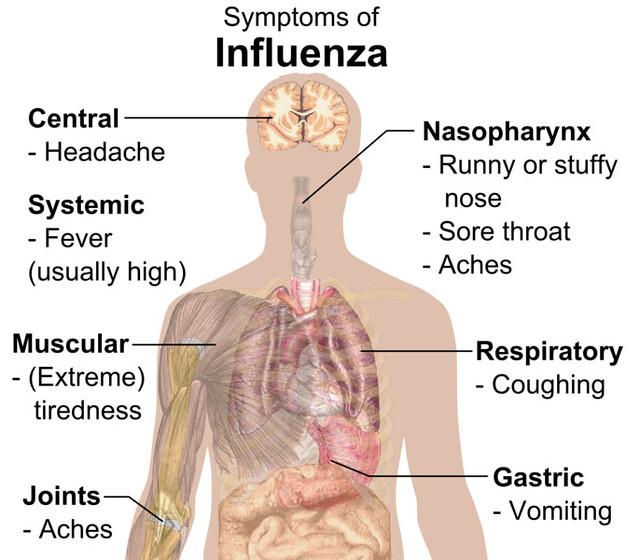
Leukemia is a type of cancer that affects the blood and bone marrow. It is characterized by the overproduction of abnormal white blood cells. As the disease progresses, these cancerous cells crowd out normal blood cells, leading to a range of symptoms. These symptoms can vary depending on the type of leukemia and the stage of the disease. In this article, we will explore the common symptoms of leukemia and how they can manifest in patients.
If you or a loved one are experiencing any of the symptoms mentioned below, it is important to seek medical attention for a proper diagnosis and treatment plan.
1. Fatigue
One of the most common symptoms of leukemia is unexplained and persistent fatigue. This fatigue can be debilitating and is often not relieved by rest. Patients may feel weak and exhausted, making it difficult to perform daily tasks or engage in physical activity.
It is important to note that fatigue is a non-specific symptom and can be caused by various other conditions. However, if the fatigue is accompanied by other signs of leukemia, it is essential to consult a healthcare professional for further evaluation.
2. Frequent Infections
Leukemia can weaken the immune system, making individuals more susceptible to infections. Patients may experience frequent or severe infections, such as pneumonia, bronchitis, or urinary tract infections. These infections may be slow to resolve and can recur despite treatment.
If you find yourself frequently falling ill or experiencing prolonged periods of sickness, it is important to discuss these symptoms with a healthcare provider to rule out any underlying health issues, including leukemia.
3. Easy Bruising and Bleeding
Abnormal white blood cells produced in leukemia can interfere with the body’s ability to form blood clots, leading to easy bruising and unusual bleeding. Patients may notice an increase in bruising, nosebleeds, bleeding gums, or prolonged bleeding from minor cuts or injuries.
If you are experiencing unexplained bruising or bleeding, it is important to seek medical attention to determine the underlying cause and receive appropriate care.
4. Swollen Lymph Nodes
Leukemia can cause the lymph nodes to become swollen or enlarged. These swollen lymph nodes can be felt as lumps under the skin, particularly in the neck, armpits, or groin. The swelling may be painless or tender to the touch.
If you notice any unusual lumps or swelling in your lymph nodes, it is important to have them evaluated by a healthcare professional to determine the cause and appropriate course of action.
5. Unexplained Weight Loss
Rapid and unexplained weight loss is another potential symptom of leukemia. Patients may experience a significant decrease in weight without making any changes to their diet or physical activity. This weight loss may be accompanied by loss of appetite and a general feeling of malaise.
If you are losing weight unintentionally and are experiencing other symptoms of leukemia, it is important to seek medical advice for a thorough evaluation.
6. Bone Pain
Leukemia can cause pain in the bones and joints, particularly in the long bones of the arms and legs. This pain may be persistent and worsen at night. It can also be associated with a feeling of tenderness in the affected areas.
If you are experiencing unexplained bone pain or discomfort, it is important to consult a healthcare provider to determine the cause and receive appropriate treatment.
7. Shortness of Breath
As leukemia progresses, abnormal white blood cells may accumulate in the lungs, leading to shortness of breath and difficulty breathing. Patients may experience breathlessness during physical activity or while at rest.
If you are experiencing persistent shortness of breath or chest discomfort, it is important to seek medical attention for a proper evaluation and management of your symptoms.
8. Anemia
Leukemia can lead to a decrease in red blood cells, resulting in anemia. Symptoms of anemia may include weakness, dizziness, pale skin, and a general feeling of fatigue. Patients may also experience an increased heart rate or shortness of breath.
If you are experiencing symptoms of anemia, it is important to consult a healthcare provider for a thorough assessment and appropriate management of your condition.
9. Abdominal Discomfort
Leukemia can cause enlargement of the liver and spleen, leading to discomfort or fullness in the abdomen. Patients may also experience pain or tenderness in the abdominal area, particularly in the upper left side, where the spleen is located.
If you are experiencing persistent abdominal discomfort or swelling, it is important to seek medical attention for further evaluation and appropriate care.
10. Neurological Symptoms
In some cases, leukemia may present with neurological symptoms, such as headaches, seizures, or changes in mental status. These symptoms can occur if the cancer cells spread to the central nervous system or brain.
If you are experiencing any neurological symptoms in addition to other signs of leukemia, it is crucial to seek prompt medical attention for a comprehensive assessment and management of your condition.












